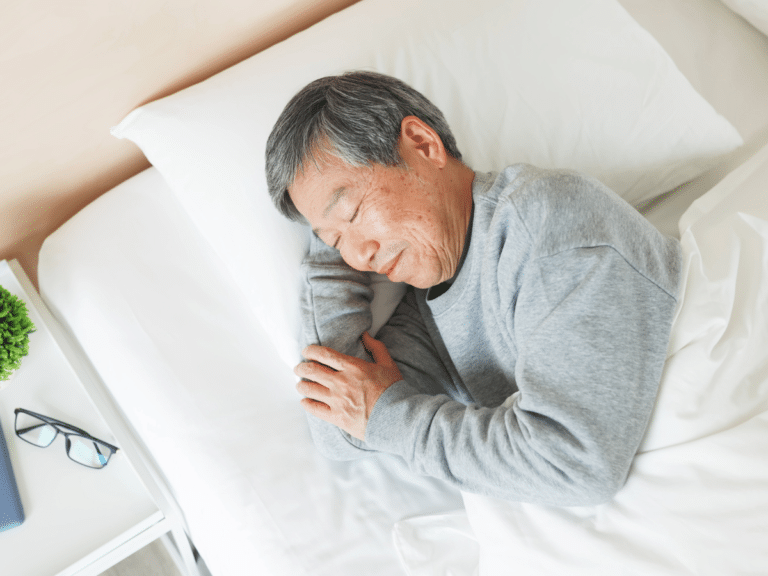With the spring season finally here, we are about to enjoy longer days with more warmth and sunshine. For many Canadians, this is a wonderful time of year. With winter finally behind us, we can make more plans to head outdoors and enjoy the weather with family and friends. For many Canadian seniors, however, the hustle and bustle that comes with the spring season makes it harder to sleep.
Did you know that this past Friday was World Sleep Day? The annual occasion sees sleep health advocates across the world taking action in their local communities, clinics and countries to raise awareness of sleep health. It is recommended that seniors get at least seven to eight hours of sleep each night. But what can they do to get better sleep during the spring season?
Create a relaxing bedtime routine.
Since the spring season may make your household a bit busier during the day, it’s important to put efforts into making bedtime a very peaceful and relaxing experience. By establishing a calming bedtime routine, you will signal to your body that it’s time to wind down. Engage in such activities as reading a book, taking a warm bath or practicing relaxation techniques like deep breathing or meditation.
“Like yoga, a regular meditation practice can improve your sleep quality,” writes Danielle Pacheco for Sleep Foundation, “Mindfulness meditation teaches people to accept their thoughts and manage emotions, enabling sleep onset, rather than stressing about not falling asleep.”
Limit your exposure to light.
As mentioned, in the spring, the days get longer. On some days, you’ll notice that it is still light outside well into the evening. This isn’t exactly conducive to getting shuteye. To help signal to your body that it’s time to sleep, dim the lights in your home. As well, be sure to avoid using electronic devices with bright screens before bed. As PulseAir tells us, your exposure to light can have a major impact on your circadian rhythm.
“Your circadian rhythm is your body’s internal clock that tells you when to be awake and when to rest,” their website explains, “Natural light and artificial light can affect the circadian rhythm and your body will adjust to whatever it gets the most exposure to…When you are getting exposure to bright lights and artificial lights right before bed can affect your body’s internal clock by thinking it’s time to stay awake and you will have a hard time falling asleep.”
Don’t eat too close to bedtime.
It’s important to be mindful of what you eat and drink, especially in the hours leading up to bedtime. Avoid heavy or spicy foods, as well as caffeine and alcohol, which can disrupt your sleep. It’s also wise to complete your last meal of the day a few hours before you hit the hay.
“Consuming a meal less than two hours before sleep time or consuming a major percentage of the daily calories late in the day can greatly impair sleep quality,” informs Dr. Gary Wenk for Psychology Today, “Essentially, eating too many calories at the end of one’s biorhythm can induce the gut microbiota to produce a pro-inflammatory state that disrupts your circadian rhythm and sleep quality.”
Invest in a home hospital bed.
Home hospital beds allow individuals to increase their sleeping comfort by adjusting bed positioning with proper therapeutic mattress surfaces. To learn all about them, please don’t hesitate to call LifeCare Mobility Solutions at 416-267-9800 or email us at info@lifecaremobility.ca. You may also contact us by filling out the form on our Contact page!










